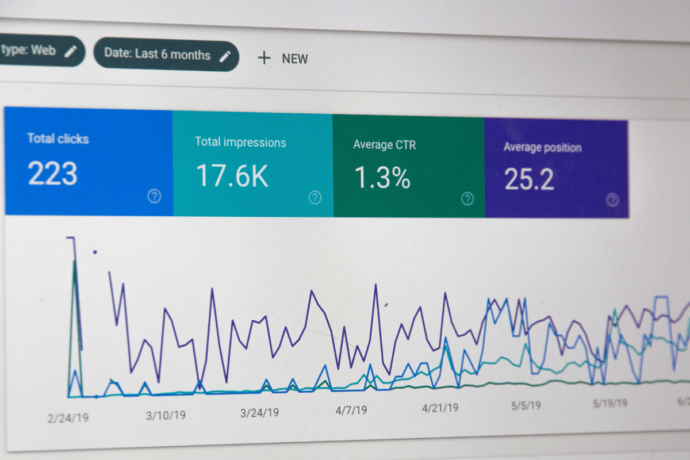A well-ranking website contributes significantly to brand awareness and increasing organic traffic. No matter what kind of content, products, or services your website offers, organic traffic will always benefit company growth and will ultimately help your business reach its goals.
Ranking highly on Google Search Results is one of the main driving forces of organic traffic. But what does this mean? Read along as we try to understand the ever-changing sphere of Google rankings, organic traffic, backlink building, referring domains, and meta.
What is Google Ranking, and how is this determined?
When a user searches for a keyword or a query relevant to your website, the Google ranking is the position your website will be listed for this particular search term. The first page of a Google search result will list the top 10 websites deemed relevant by Google for that specific search term. Ranking in position one means your site is ranked at the top of these results. The reason why can vary, however.
Ultimately, Google wants to provide the best user experience possible for those using their platform to search. Therefore, Google prioritises sites they deem to have a positive and relevant user experience. Several other contributing factors, from keywords to optimised content to page speeds, in the algorithm play a role in Google’s ranking process. Improving your website’s ranking means taking all of this into consideration.
Implications of Low Ranking
Ranking below the first page of search results can negatively affect your website’s traffic and, ultimately, conversions. It is well known that users don’t tend to navigate beyond the first page of search results, but just how much does click-through rate decline? Research has shown that the top-ranking site on search results has an average click-through rate of 28.1%. Following this, the second and third-ranked site has a click-through rate of 15% and 11% respectively. The tenth or last result on the first page drops drastically and only has a click-through rate of 2.5%.
Considering this declining percentage, organic traffic potential and click-through rate beyond the first page, you want to improve your ranking as close to the top ten as possible to increase the potential for new users to find your website and your brand.
How to Improve Ranking
While there is no quick fix to boost your website to position one, there are several opportunities for optimisation that can influence Google’s algorithm to boost your site’s rankings.
- Optimised content
Firstly, ensure that your on-page copy, blog posts, page titles, meta descriptions, URLs and more are optimised for the keywords you want to rank for. Optimise your content for relevance and enhance your user experience. Avoid including too many keywords or ‘keyword stuffing’, as this black-hat SEO method will likely decrease your rankings.
- Page title and Meta description length
Even an optimised page title and meta description must adhere to their respective character limits. Keeping the character count within the recommended limit is just as important as the words and format you have used.
- Backlinks and Referring domains
Backlinks are an important ranking factor for all search engines, making referring domains essential to your ranking. Referring domains are the websites that include a link to your website on theirs. The more websites that link to your website, the better. Carrying out a competitor backlink analysis will give insight into your competitors backlink profiles and the number of referring domains, providing suitable targets for link building activities.
- Optimising page speed
Optimising page speed is a significant factor in user experience. The longer your site takes to load, whether, on desktop or mobile, the less likely the user will remain on your page, which leaves little opportunity for conversion.
- Digital PR activities
Carrying out digital PR activities such as content placements and brand partnerships allows you to reach a wider audience and increase brand awareness. PR activities also contribute to your referring domains should you negotiate the inclusion of a backlink. Connecting with relevant brands and partners with suitably high domain authority will pass on that same authority to your site, contributing to your ranking success.
What do I do if my site is ranked Number 1?
While there are over 200 different ranking factors that you can seek out to improve the position of your website, once you have reached the top ranking position, there is no guarantee that you will stay there. Optimise constantly as factors such as Google Algorithm Updates, competitor activities and user intent change, all factors that will impact your ranking levels. Try to optimise your site before any significant impacts to help stabilise and maintain your position. As well as optimising and identifying new keyword opportunities, carry out link building activities will continually build your authority and continue the flow of organic traffic to your site.
Overall, improving your ranking can be an ongoing process that requires patience and skill. However, over time you will reap the benefits. If you are unfamiliar with Google and SEO territory, consider hiring a specialist to help you in these areas. Get in touch with Yoghurt Digital to find out the best approach for your business.

